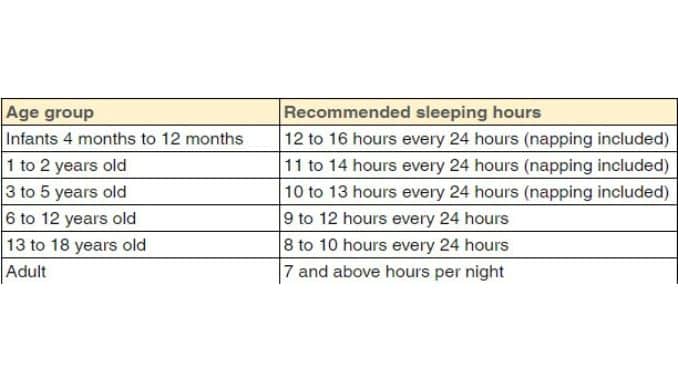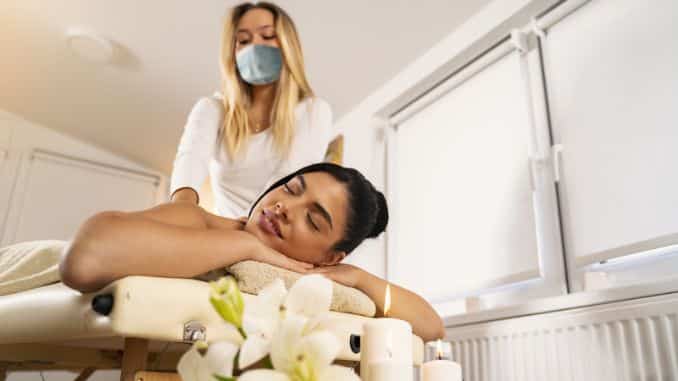How do you strengthen your immune system?
The information we are presenting today is for your information only and is not intended to treat, diagnose or prescribe in any way. Always talk to your doctor if you have health issues.
The immune system serves many essential functions. It detects and responds to invaders called antigens, which are substances that trigger an immune response. It also remembers specific antigens so that your immune response will be quicker and more effective if you reencounter them.
The immune system defends the body against infection by identifying and neutralizing harmful microorganisms such as bacteria and viruses that is why it is important to strengthen your immune system.
The question is how do you strengthen your immune system, a healthy immune system plays a critical role in our everyday lives. The system protects us from germs and bacteria, keeps us from getting sick, and tackles potential health threats. However, with all that the immune system has to do, it can sometimes get overworked and needs a little support. During these times, you need to take proactive measures to help your body deal with stress and support your immune system. Here are some suggestions on how you can strengthen your immune system so that you stay healthy much of the time.

1. Managing Stress
Stress is a normal reaction to pressure or demand. It is your body’s way of responding to stressful situations with a fight-or-flight response. Stress can be good for you when it motivates you to tackle a challenge or meet an important deadline. But unmanaged stress can lead to serious health problems and negatively impact your work performance and other areas of your life.
Managing stress is essential to staying healthy, happy, and productive. Stress is not necessarily a bad thing; it can be helpful if it helps you meet a goal or deadline. However, constant stress can lead to serious health problems. There are several ways to manage stress in your life. The first step is to identify what stresses you out the most. Depending on your situation, you might have several things that cause stress.
Recommendations:
- Community/social circle – Get involved with a cause you’re passionate about, find a recreational activity you enjoy, or try to meet new people. The more active your social life is, the more likely you will meet someone who can become a significant other. If you have a small group of friends or are not very outgoing, consider joining a MeetUp group to meet others who share your interests. You can also make an effort to be friendly and helpful toward others, which often results in them wanting to get to know you better. In the process, you might just find a potential partner.
- Breathing. Breathing exercises can help you reduce stress and normalize your cortisol levels by activating the parasympathetic nervous system. When you are stressed and tense, your body tenses up. The muscles in your neck and shoulders tighten, your muscles contract, and your blood pressure increases.
- Journaling. Writing down your thoughts and feelings helps you process and deal with them. It’s a great way to unload your mind and release negative emotions. It’s also a great way to reflect on your life and let go of regrets. If you keep a journal, you’ll be able to go back and read what you were thinking at different points in your life. This can be very helpful if you’re trying to solve a specific problem or have moved past a certain point in your life and are trying to make sense of it.
2. Sleep/Rest
Sleep is as essential to your mental health as diet and exercise. Rest is when your brain refreshes and repairs itself. Without enough sleep, you will always feel tired, have difficulty concentrating, and be prone to irritability and depression.
The immune system fights off viruses and other diseases that can make you sick. It is also responsible for repairing any damage done to your body during the day, like fighting off bacteria that cause that nasty rash you got from that public toilet seat. The best way to boost your immune system is to get enough sleep every night. Getting enough sleep is also good for your mental health. This way it can help you strengthen your immune system.
Recommendations:
- Do not tolerate stressors. When you review your day and go over your stressors, you need to identify if they are happening tomorrow. If you can change them, do so. If you cannot, go over positive things you can do to help you sleep.
- Modify the type of sleep you have. For example, if you are sleeping with your pets or your kids, it can be upsetting. So avoid sleeping with your pets or with your children next time. The negative effect if you are sleeping in a noisy environment, the negative impact can also harm your sleep. Make sure you have the right mattress and the temperature and that there are no pets in the bed. Improve the quality of your sleep with the help of melatonin, lavender oil, or other sleep aids.
See the table below for the recommended sleeping hours of an individual that can help you strengthen your immune system.

3. Addressing environmental factors
Environmental factors are external conditions that can either positively or negatively impact our health. These factors can be either controllable or non-controllable. Non-controllable factors such as age, gender, and genetic makeup are not modifiable, but controllable factors such as diet, physical activity, and stress reduction can significantly impact your health.
Researchers believe a healthy environment can boost our immune system and keep us healthy. A polluted environment can have the opposite effect. An unhealthy environment can suppress the immune system and make us more susceptible to disease. An excellent example of this is mold illness. A mold illness is a type of chronic condition that can be triggered by exposure to certain types of mold. It may cause various symptoms depending on the type of mold you were exposed to.
The most common symptoms of mold illness include:
- Nasal congestion – A “stuffy nose” is caused when excess fluid builds up in the nasal and adjacent tissues and blood vessels, resulting in a “stuffy” plugged feeling. It is usually a mild inconvenience for adults and children over ten. However, a stuffy nose can cause severe problems for infants and babies who cannot feed because of their congestion or for children whose sleep is disrupted.
- Nasal itching – When allergens are inhaled, and histamine is released, it causes allergic rhinitis. The symptoms are itching, swelling, and excess mucus production. As a result, the sensitive linings of the nostrils, sinuses, and eyelids become swollen and itchy.
- Coughing is exhaling air from the lungs with a sudden, audible release of air. Coughing is a reflex to keep your airways clear. Another condition, such as asthma or a respiratory infection, may cause your coughing.
- Fatigue is a condition characterized by a lessened capacity for work and reduced efficiency of accomplishment, usually accompanied by a feeling of weariness and tiredness. This is generally due to excessive stress and a weakened immune system caused by mold.
- Weakness – Exposure to molds can result in a low immune system, thus weakening your body. Therefore, to stay healthy, you must maintain good indoor air quality by keeping decay away from your living space. You can keep indoor humidity levels between 30 and 60 percent. You must also regularly inspect your home for signs of mold and fix any leaks in your roof and walls. Also, you can use anti-mold paint to repel molds from your home. Compared to other paints, anti-mold paints have higher resistance to moisture and humidity, which is essential for preventing mold growth. Moreover, these paints are formulated with sealants and other active ingredients that inhibit the growth of molds, such as copper or potassium salt. With the help of anti-mold colors, you can keep your home free of mildew.
Recommendations:
- Closed windows can help keep outdoor mold out while you sleep. During cool, damp nights, the concentration of airborne mold spores is highest. Therefore, it’s best to limit your time outdoors on those nights if you have allergies or asthma.
In addition to avoiding high mold spore concentrations, there are other ways to help reduce your allergies and asthma symptoms during these nights. For example, you can stay indoors in a climate-controlled environment. You can also ensure that your home has good ventilation to keep indoor air fresh and moveable. You can prepare a warm, cozy meal that will help lift your spirits as well.
- Wear a dust mask over your nose and mouth to keep mold spores out.
Other ways:
- Ensure that exhaust vent fans are turned on when you shower in the bathroom or cook in the kitchen to prevent moisture and humidity from accumulating.
- Your dryer must have an exhaust vent that vents to the outside, not the inside.
- It's best to avoid using wall-to-wall carpeting in wet or moist areas such as basements, bathrooms, and kitchens.
- Repair any leaks around your house as soon as possible to prevent mold from developing.
- Look for mold in storage bins for clothing and fabric, particularly in your storage areas.
- It is best to avoid going outdoors during certain times, such as right after a rainstorm, when the published mold count is high, or in foggy or damp weather.
4. Avoid Smoking or keeping away from toxic air

As much as possible, avoid exposing yourself to cigarette smoke or other toxic fumes and gases. These fumes are hazardous and linked to a wide range of serious illnesses, including lung cancer, COPD, and other diseases. Protect yourself with respirators and other protective gear if you have to be around these fumes for work.
Or better, stay away from toxic chemicals as much as possible. Countless household and industrial products contain these chemicals, which can be just as dangerous as fumes if not handled with care.
Recommendations:
- If you must be around fumes, see that you have the proper protection, such as a respirator. Make sure that you fit it correctly and keep it clean and maintain it. If you are working with something toxic or poisonous, ensure that you have the proper equipment to protect yourself.
- Wear masks and extra precautions when using bleach or other chemicals. Even if you’re just cleaning up around the house, it’s crucial to take safeguards with any chemicals you might be using.
5. Movement and exercise
Not exercising regularly and being physically active daily can negatively affect your immune system. Regular exercise increases blood flow, which brings essential nutrients to your immune cells, helping them to function better. Regular exercise also helps reduce stress, negatively affecting the immune system. It also improves blood flow, lowers blood pressure, and decreases the risk of cardiovascular disease. Regular exercise can also ease symptoms of depression and anxiety, which are both stressors that negatively impact the immune system.
Recommendations:
- Massage helps improve the function of the immune system, which in turn helps fight diseases and infections. Stress and anxiety suppress the immune system, and this method reduces them.
- Regular movement and exercise help to improve blood flow, reduce stress, and boost energy levels. It also helps produce antibodies, which are essential for the immune system. Regular exercise will also help with weight maintenance and management, which is vital for overall health and wellness.
Other factors that can help boost the immune system and can strengthen your immune system are dry skin brushing and avoiding food triggers.
Dry skin brushing is a lymphatic movement that helps to detoxify and eliminates the dirt you tend to keep in your skin which can clog pores and cause breakouts. Dry skin brushing before going to bed will help you sleep better. It also exfoliates the top layer of skin, revealing a smoother, more radiant complexion.
There are various ways to dry brush, but the most common is to start at your ankles and brush toward your heart. Doing this stimulates blood flow toward the heart and lymph toward your kidneys. It also boosts your nervous system, increasing the production of serotonin, which can improve your mood and fight stress. It is advisable to do it before taking a shower so that all the dead skin can be washed away.
Furthermore, there are many ways to dry skin brush, but the easiest way is to use a natural bristle brush. You can also use a loafer brush. The loafer brush is softer than the natural bristle brush and is excellent for sensitive skin.
Avoiding food triggers may sound complicated, but there are ways to manage your food allergens to improve your immune system. It is believed that an imbalance in certain nutrients can cause your immune system to become more sensitive to certain foods. Eating a diet rich in anti-inflammatory foods can help balance your system. Foods with antioxidants and omega-3 fatty acids are believed to have anti-inflammatory properties. Vitamin D is another nutrient that is important for your immune system. Deficiency in this vitamin has been linked to an increase in inflammation. Food triggers are certain foods that cause your body to produce more histamine, leading to uncomfortable symptoms. Typical food triggers are rich in histamines, such as cheese, eggs, soy, and processed meats.

Summing up: When it comes to getting enough sleep, you may think, “How much is enough?” Well, the amount of sleep you need varies from person to person.
Sleep is when your body repairs and resets, so getting enough of it is essential. Also, ensure your rest and activity schedule fits your body’s natural rhythms.
Remember that sleep is different for everyone and is affected by numerous factors, including age, your daily schedule, and whether or not you take medications. If you are a student, you must organize your time and make it a priority. If you have a full-time job, it is also important to prioritize sleep. You don’t want to burn yourself out by working hours and staying late every night.
If you consistently feel tired after you wake up in the morning or have trouble falling asleep at night, it may be a sign that you aren’t getting enough sleep. If you have trouble sleeping, try to relax before going to bed. Avoid drinking caffeinated beverages in the afternoon and evening. Exercise during the day, but not too close to bedtime. Stay away from screens a couple of hours before bed. Keep a sleep schedule, even on the weekends. Create a relaxing bedtime ritual. Stay away from activities that cause you stress. Certain foods can help you fall asleep, like cherries, bananas, almonds, and other foods high in tryptophan.
What matters most is that you find ways and activities you enjoy, so it will be something you can stick with long-term to help improve your immune system and you can apply the different ways on how do you strengthen your immune system.





